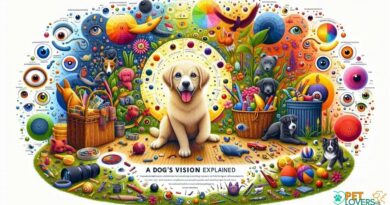What is Nutrition guidelines
What is Nutrition Guidelines?
Nutrition guidelines are essential frameworks designed to provide recommendations on dietary practices that promote health and well-being. These guidelines serve as a roadmap for pet owners, helping them understand the nutritional needs of their dogs. By following these guidelines, owners can ensure that their pets receive balanced diets that support their overall health, growth, and longevity.
The Importance of Balanced Nutrition
Balanced nutrition is crucial for dogs as it directly impacts their physical health, energy levels, and immune system. A well-rounded diet includes the right proportions of proteins, fats, carbohydrates, vitamins, and minerals. Understanding the importance of each nutrient helps pet owners make informed decisions about their dog’s diet, ultimately leading to a happier and healthier pet.
Understanding Nutritional Requirements
Every dog has unique nutritional requirements based on factors such as age, breed, size, and activity level. Puppies, for instance, require more protein and calories to support their rapid growth, while senior dogs may need diets lower in calories but higher in fiber. Familiarizing oneself with these specific needs is a key component of adhering to nutrition guidelines.
Key Components of Dog Nutrition
Dog nutrition encompasses several key components, including proteins, fats, carbohydrates, vitamins, and minerals. Proteins are vital for muscle development and repair, while fats provide energy and support skin and coat health. Carbohydrates serve as a source of energy, and vitamins and minerals are essential for various bodily functions. Understanding these components helps pet owners create balanced meals for their dogs.
Reading Dog Food Labels
To effectively follow nutrition guidelines, pet owners must learn how to read dog food labels. Labels provide valuable information about the ingredients, nutritional content, and feeding guidelines. By understanding how to interpret this information, owners can select high-quality dog food that aligns with their pet’s nutritional needs and the established guidelines.
Homemade vs. Commercial Dog Food
When considering nutrition guidelines, pet owners often debate between homemade and commercial dog food. Homemade diets can be tailored to meet specific nutritional needs, but they require careful planning to ensure balance. On the other hand, commercial dog foods are formulated to meet established nutritional standards, making them a convenient option for many pet owners.
Consulting with Veterinarians
Consulting with a veterinarian is a crucial step in understanding and implementing nutrition guidelines for dogs. Veterinarians can provide personalized recommendations based on a dog’s health status, dietary preferences, and lifestyle. Regular check-ups also allow for adjustments to the diet as a dog ages or if health issues arise, ensuring that nutritional needs are consistently met.
Common Nutritional Myths
There are several common myths surrounding dog nutrition that can lead to confusion among pet owners. For example, some believe that dogs can thrive on a vegetarian diet, while others think that table scraps are a suitable meal. Debunking these myths is essential for promoting accurate understanding of nutrition guidelines and ensuring that dogs receive the best possible care.
Adjusting Diets for Special Needs
Some dogs may have special dietary needs due to health conditions such as allergies, obesity, or diabetes. Nutrition guidelines can be adapted to accommodate these needs, ensuring that affected dogs receive appropriate nutrition without compromising their health. Working with a veterinarian or a pet nutritionist can help owners navigate these adjustments effectively.
Monitoring Your Dog’s Health
Finally, monitoring a dog’s health is an ongoing process that should accompany adherence to nutrition guidelines. Regular observations of a dog’s weight, coat condition, and energy levels can provide insights into whether their dietary needs are being met. Adjustments may be necessary based on these observations, ensuring that the dog remains healthy and happy throughout its life.



